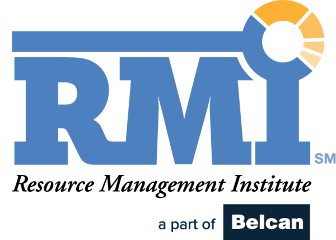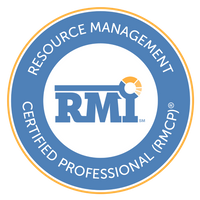Five Remote Work Tips for Resource Managers to Avoid Unengaged, Unproductive Teams
Companies around the world are relying on remote work to keep their businesses running through unprecedented time. Resource managers across all industries are facing new challenges in how to keep their teams productive and their projects on track.
Remote work has been part of everyday life for some companies. But for many others, this is an adjustment period. Whatever your team’s level of experience may be, the following five tips to keep remote workers productive can help resource managers find success amidst a swiftly changing company structure.
1. Use Time Tracking to Keep Resources Focused
Not every business uses time tracking timesheets to gauge productivity or project success, but when teams transition to remote work, time tracking can help managers better understand team efficiency. This doesn’t mean that a sudden implementation of time tracking should be used to scare employees into working harder, but rather that the insights gained will be helpful in understanding how to support employees in times of change and improve utilization rates.
2. Schedule Regular Individual and Team Check-Ins
Remote work means that literal face-to-face interaction is no longer possible, but thanks to teleconferencing, distributed teams can still see and talk to each other live. Leverage this capability by holding regular team meetings and check-ins with your team members at least once a week to keep professional relationships intact. Encourage meetings that go beyond business updates and touch base with your teams on a personal level to strengthen your management strategies and support both the worker and their work.
3. Help Projects Flow With Gantt Charts
Gantt charts not only create a definitive list of tasks that make up a project but also stack them in cascading order to keep work moving forward. Within projects, tasks will be assigned to appropriate resources, given a timeline for how long each should take to be completed, and will alert resources when their tasks should start. This information helps each project move forward, on time. Even when done remotely, projects executed in a Gantt chart will help facilitate collaboration and a feeling of team unity.
4. Utilize Collaborative Online Documents and a Centralized Information Source
As team members move online, so should their documents. Today, simple documents and spreadsheets can be edited and collaborated on simultaneously by multiple team members through Google Docs while strong online resource management solutions create collaborative tools with live updates to keep every team member informed and involved. The collaboration made possible by these documents is great, but companies will need a way to centralize them and organize documents around resources and projects to make the most of their abilities. Try moving away from offline tools and embrace online real-time collaborative software to keep team members in touch and working together every day.
5. Give Team Members the Tools They Need
Resource managers may not have immediate insight into what tools your team may need to stay productive when they move to remote work. Checking in with remote workers early to identify any gaps in access to tools or tasks that have become more difficult to complete since moving to remote work. Supporting remote workers through software solutions and hardware when necessary will keep teams productive.
With these strategies in place for your remote work team, combined with reliable resource management software that can respond to an expanding and distributed workforce, your company can continue to thrive through changing workforce demands.

Ryan Montano
Ryan Montano is a technology professional with a passion for Product Management, Product Marketing, and Product Development. His areas of focus include B2B SaaS, Project Management, Analytics, Machine Learning, Artificial Intelligence, UI/UX design, and Startup Ventures. Ryan has spent nearly a decade in product development working closely with R&D and marketing teams on long-term strategic planning. This has allowed him to help shape countless key technology features and requirements that capture the essence of product value for clients.




